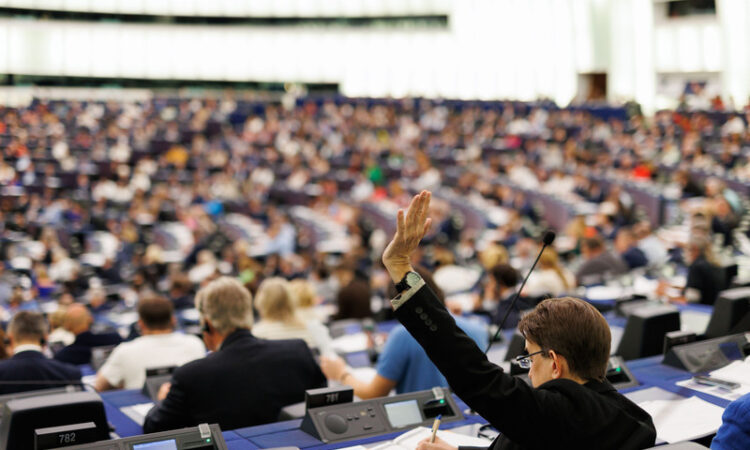
The EU Parliament approved a negotiating text on fiscal rules during a plenary vote in Strasbourg on Wednesday (17 January) that requires an annual debt reduction of one percent of GDP for countries with high debt and 0.5 percent for countries with medium debt levels.
Although nobody expected the file to be rejected, MEPs from the Green and Left parties led the resistance against the parliament’s proposed debt-and-spending restrictions, which they warn will undermine the member states’ future green and social spending.
“If you vote for these rules, you vote for economic, environmental, geopolitical and democratic suicide,” said Greens leader Philippe Lambers in his final battlecry before the vote.
Other rejecting MEPs mostly belonged to the far-right Identity and Democracy Group (ID) or did not belong to an EU political family.
The vote was approved by a majority of 431 against 172.
This ostensibly gives the parliament a solid mandate to enter trilogue negotiations with member states.
“We say no to austerity. We want to see more investments, more flexibility, more democracy,” socialist co-rapporteur Margarida Marques said during Wednesday’s plenary debate.
The first talks started immediately after the vote on Wednesday, and many hope to reach a final agreement before the elections in June this year.
But there is much disgruntlement within parties that voted yes on Wednesday.
The Socialists and Democrats (S&D) are especially caught in a difficult position, with 15 of their members — including all French and Belgian MEPs and most Swedish— voting to reject the text. Two MEPs from Finland abstained.
Marques may have claimed that she succeeded in “softening” the text, specifically on debt reduction and fiscal tightening, but the text differs little from the member states on debt reduction.
Economy commissioner Paolo Gentiloni last week indicated that the final agreement will likely resemble the council-approved text. That would require most member states to cut back on investments significantly from 2025 onwards, as has been shown by calculations made by the Brussels-based think tank Bruegel.
According to these figures France would have to cut €14bn a year for seven years to stay within the “softer” limits.
Italy and Spain, especially hard hit relative to their national income, would have to cut €13.5bn and €8.5bn a year, respectively.
“This is the opposite of what workers need,” said Patricia Velicu, senior policy adviser at Industriall, the pan-European labour union representing over seven million manufacturing workers. “The European Green Deal most impacts manufacturing. If countries have to reduce their budgets, delivering on these green investments is impossible. Once again, Europe is the only major economy tying its hands behind its back while China and the US are not.”
“After 2025, it will be virtually impossible for countries with higher debt to make the necessary [green] investments,” the Austrian economist Philipp Heimberger told EUobserver. “Empirically, we know that postponing or cutting green investment plans is the easiest way to stay within spending limits.”
“It is hard to see any large EU country accepting the economic damage caused once these rules are enforced. They never did before, and there is no reason to expect they will now,” he added. “I expect [the rules] to become politically unenforceable pretty quickly.”






